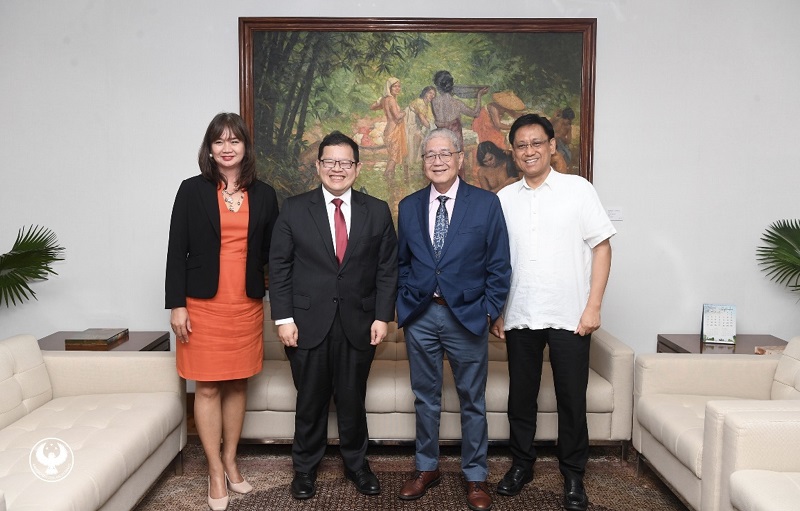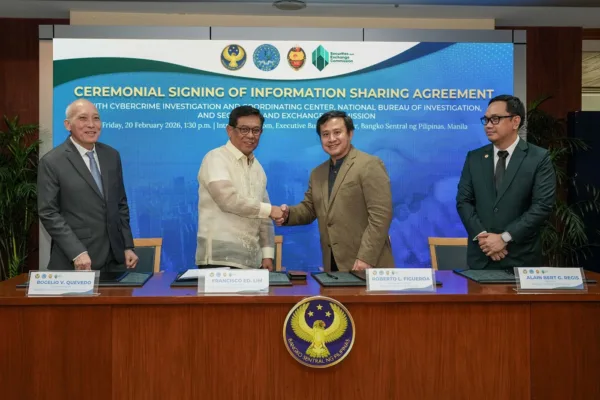The Financial Sector Forum (FSF) remains committed to intensifying efforts in building a more resilient, sustainable, and inclusive financial system in the Philippines through its ongoing projects.
In a meeting with BSP governor and FSF chairman Eli M. Remolona, Jr., which was held last September 29, the FSF said that these projects are in the areas of financial conglomerate supervision, sustainable finance, information exchange, financial technology, and consumer protection and education.
For his part, Remolona said that the FSF serves as an important platform for taking a holistic approach to introducing reforms in the financial sector.“The work of the FSF is highly relevant and responsive to the emerging trends and changing environment,” the BSP governor said in his speech.

Photo shows (from left): PDIC General Counsel Atty. Maria Antonette B. Bolivar, SEC Commissioner Atty. Kelvin Lester K. Lee, BSP Governor Eli M. Remolona Jr., and Insurance Commission Deputy Commissioner Ferdinand George A. Florendo
This is the first FSF meeting attended by BSP Governor Remolona since he assumed office in July 2023.
The FSF is now the third financial conglomerate subject to inter-agency cross-sectoral review following the signing of the Memorandum of Understanding (MOU) on the Establishment of Supervisory College for Financial Conglomerate Supervision on January 25, 2022. The cross-sectoral review is aimed at enhancing risk surveillance and monitoring to promote the stability and soundness of the financial system.
The Forum also recently exposed for comments the local sustainable finance taxonomy, which covers climate change mitigation and adaptation objectives. The local taxonomy will serve as a tool to assess whether an economic activity is environmentally or socially sustainable.
The document has given particular focus to Micro Small and Medium Enterprises (MSMEs) in line with the thrust to promote inclusive green finance. The comment period will end on October 6, 2023.
In June 2023, the handbook “Personal Finance 101 for College Students” was formally launched through the signing of a memorandum of agreement among FSF-member agencies, the Commission on Higher Education, the National Economic and Development Authority, and the BPI Foundation.
This financial education program for college students will cover important concepts such as financial planning, savings and budgeting, debt management, investing, fraud and scam prevention, digital financial literacy, and financial consumer protection.
The FSF is now also ramping up efforts to engage industry associations to promote customer-centricity in the delivery of financial services as part of its consumer protection and education initiatives.
Meanwhile, inter-agency discussions continued in relation to upskilling supervisory personnel in response to the rapid technological advancements and expanding information-sharing arrangements across the financial sector.
The FSF, a voluntary inter-agency body composed of the Bangko Sentral ng Pilipinas (BSP), the Securities and Exchange Commission (SEC), the Insurance Commission (IC), and the Philippine Deposit Insurance Corporation (PDIC), provides an institutionalized framework for consultation, coordination, and exchange of information relative to the supervision and regulation of the financial system while preserving each agency’s mandate.







